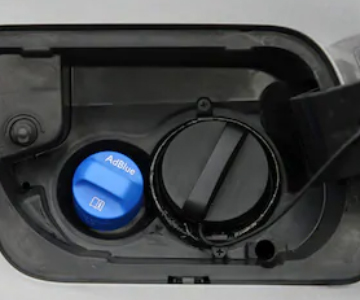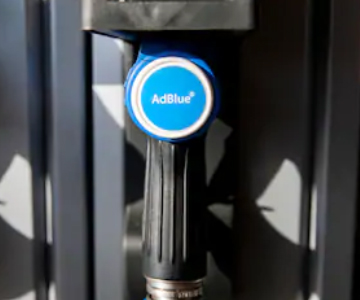AdBlue is a legal requirement for vehicles fitted with Selective Catalytic Reduction technology, and is used in trucks, buses, cars, vans, boats, excavators, tractors, etc. With more than 23,000 reported breakdowns a year are due to accidental misuse or lack of understanding of the use of AdBlue, it is important to recognise why we must use AdBlue and how we can use it efficiently.
What is the purpose of AdBlue?
AdBlue is needed in any diesel vehicle equipped with Selective Catalytic Reduction (SCR) technology to comply with Euro 5 and Euro 6 emission standards. AdBlue is not a fuel, or a fuel additive, but a reducing agent used within the SCR system to convert the harmful Nitrous Oxide into innocuous Nitrogen and Water, resulting in less pollution.
How do I know if my vehicle needs AdBlue?
AdBlue should only be used in diesel cars fitted with an SCR system. It’s worth looking around your vehicle for an AdBlue filler cap, usually found next to the fuel filler, in the boot or under the bonnet.
The model name may help you identify whether your vehicle requires AdBlue. The model of the vehicle may have the letters ‘SCR’ or ‘Blue’ in it, indicating the need for AdBlue. The newer the diesel car, the more likely it is to need AdBlue. If in doubt consult the vehicle handbook, or ask the dealer you bought the car from.
What should I know about using AdBlue?
Using water instead of AdBlue - In short, you mustn’t use water instead of AdBlue, or water down the AdBlue in anyway. AdBlue is a mixture of urea and 67.5% de-ionized water. Where as tap water contains a lot of minerals and ions that is harmful to the vehicle exhaust treatment system.
Using Adblue in my diesel fuel tank - AdBlue is commonly mistaken for a fuel additive when it is actually an exhaust fluid, which should never be mixed with diesel. Adding AdBlue into your fuel tank can cause thousands of pounds worth of damage to your tank, pump and injection system. To help prevent this, AdBlue is easily identified by a blue nozzle and blue fill cap.
If you accidentally add AdBlue to your fuel tank by mistake, it is important not to start the engine. In the worst case scenario this could cause enough damage to you write-off your vehicle. Your fuel tank will need draining and the contents disposed of safely before you can refill it. The best thing you can do is call your Breakdown Company, or local garage.
Running out of AdBlue - Your engine will not be damaged if you run dry of Adblue, most engines automatically limit engine performance when AdBlue supplies are depleted. Some vehicles may even be programmed not to start the engine until there is AdBlue in the tank.
Most new vehicles will have a driver information system on board, which notifies you if you’re running low on AdBlue. Although the lack of AdBlue will not directly harm your vehicle. It is worth remembering however, that not using AdBlue in a vehicle with a SCR system is against the law.
Contamination of AdBlue – AdBlue is easily susceptible to contamination from dust, dirt, oil, grease and other substances. It is important to ensure that when refilling your vehicle from an AdBlue tank that you guarantee purity. It is for this reason that if you spill AdBlue, it cannot then be used.
Where can I purchase AdBlue?
AdBlue is widely available at our Service Station Sites, however it is worth checking direct with the site that they have it in stock, before you make a special visit. Our Skiach Service Station in Evanton, also sells AdBlue direct from the pump.
AdBlue can be ordered for collection from some of our depots in 5L, 10L, and 20L Containers. We can also supply 205L Drums and 1,000L IBC’s, for commercial and agricultural uses from selected depots.
For more information, find your local depot contact details here, or contact our Commercial Account Controller, Kevin Neish on 01343 557456.

